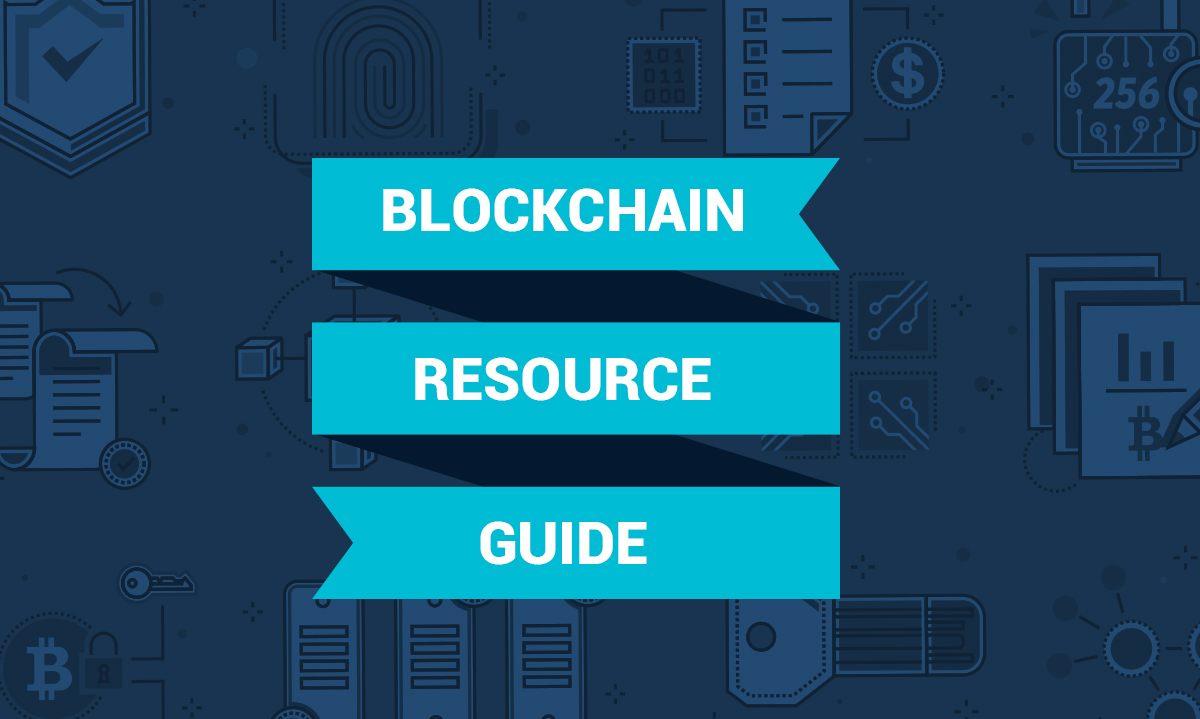Your Blockchain and Crypto Resource Guide
Blockchain is an amazing breakthrough in technology that returns power to the individual and will disrupt existing power structures. With this new power and control comes significant responsibility. Because these new technologies remove the need for a trusted third party or any kind of intermediary, each individual is now obligated to operate under a series of operational security best practices. The individual is responsible for maintaining and implementing proper security measures to maintain exclusive control of their private keys. This means there is no service to reset your password or to assist if your account is compromised. The power is truly placed back with the individual, so do not take this lightly as many people have lost large amounts of crypto neglecting these simple guidelines. Taking the time to implement a well thought out and organized approach is more than worth the time and is absolotely worth the piece of mind.
Let’s walk through some basic considerations for individuals first entering the blockchain space.
-
Security
- 2FA or two-factor authentication is an invaluable tool for adding an additional layer of security. When talking about authentication there is a fairly common three-tiered standard. Something you know (password), something you have (smart card, 2FA token) and something you are (biometric). Pretty much any web service available is going to require at least a password. By using 2FA, an additional layer of security is being added to the process. Not all 2FA methods are equal. The two most commonly used implementations are the mobile applications; Google Authenticator and Authy. Using a native application is preferred over using the SMS implementation of 2FA. For a more detailed explanation see our blog post Two Factor Authentication Options.
- Password Hygiene is the idea that an individual is required to perform “maintenance” on their passwords. Depending on your school of thought there are two common approaches. The first method is to create a complex password using upper and lower case letters, numbers and special characters. The length of a password should also be a consideration; the exact length is going to change with time but shooting for a 16-20 character password should be fine for the foreseeable future. The password would be changed on a set interval. The problem with this approach is that it can be a bit cumbersome. Luckily there are tools out there that solve this exact problem. Password managers such as Lastpass or KeePass help store, manage and create strong passwords, and go a long way in making the drudgery that is password management as close to being pleasant as possible. The second approach would be to follow NIST’s most recent guideline on passwords. To boil it down, they are no longer advising complicated passwords and instead are moving toward a passphrase, or a series of unrelated words that are strung together. Using words instead of random characters makes it much easier to memorize a passphrase of significant length and as such users are much more likely to comply with password requirements. Take some time and read up on NIST’S Guidelines. It’s jammed full of good information and remember, in the crypto world, security comes first.
- VPN or a virtual private network is a great tool to help obfuscate network traffic. It provides a mechanism to further reduce the amount of information an entity can collect. From an operational security standpoint, this is an invaluable tool. Tenta offers free and unlimited browser VPN protection, with a paid upgrade subscription for device-wide VPN service on Android devices.
-
Wallets
Before any assets can be received, a wallet must be created. There are many different types of wallets and each has its pros and cons. Before we get much deeper, let's recap on what we know about private keys. Private keys are the end all be all when it comes to maintaining control of a wallet. If someone were to get control of your private key, they would have full control of your assets. There are many, I repeat many, well written and easy to digest guides for setting up any wallet imaginable, so I am not gonna get into the specifics for any particular wallet. Instead, let's take a cursory look at the different types of wallets out there.- Paper wallets are a piece of paper with a key pair printed on it. Paper wallets are usually cited as being one of the more secure options since the wallet itself has no means of connecting to the internet. The printed key pairs are normally accompanied by QR codes that make it a bit more comfortable to receive and transfer funds. So instead of having to manually input the public and private keys, you can just take out your phone and snap a picture of the QR code.
- Hardware wallets are a device that is specifically designed to perform one task - store crypto. As such, they are very good at it; they are quite secure and fairly easy to use. The main drawback for a hardware wallet is their cost. They can be a bit expensive, usually somewhere around $100. If interested, try checking out the Ledger Nano S and Trezor. These are two pretty common hardware wallets that offer solid products and great customer support.
- Desktop and mobile wallets are also a great option; they can be hosted locally, which gives a bit more control with respect to security. With this type of wallet, the user is typically responsible for storing and securing the associated private key, or at least a password that unlocks the wallet. These are typically the most common wallets and there are many desktop/mobile wallets that support a multitude of different crypto assets which makes them quite convenient.
- Web wallets are also an option. They provide a very similar set of features but are commonly thought to be one of the least secure options since they are hosted remotely. But what they do offer is convenience. Since they are hosted on the web, they can be accessed from anywhere and with proper security etiquette, they can be reasonably secure.
-
Exchanges
Exchanges provide the infrastructure that allows individuals to swap crypto assets. Crypto exchanges function quite similarly to traditional financial exchanges; they facilitate the transfer of assets. The tough part of a crypto exchange is that they are all different and as such, they all have different requirements. Each exchange will have different know-your-customer (KYC) and anti-money laundering requirements, as well as a different fee schedule for utilizing their service.
Some of the most common and popular exchanges are Coinbase, Binance, and Bittrex. Binance and Bittrex primarily deal with alt coins (all coins that are not Bitcoin are generally referred to as alt coins). Coinbase, on the other hand, is more focused on helping individuals get started in crypto by making the process more simple and convenient. Because of this, Coinbase doesn’t offer the same variety of crypto assets as other exchanges, but it is a great avenue to easily purchase crypto.
There are several new up-and-comer’s in the exchange space and more are coming every day. Robinhood, Cash, and Bread are just a few of the companies entering the crypto space. One final thought on exchanges- each time a new account is created immediately go into settings and configure 2FA. Security is paramount. -
Social Media
So we set up 2FA, got our wallet and set up accounts on the top exchanges. Now what? The crypto sphere has developed quite a presence on several social media sites.- Twitter has become the go-to for staying up to date on crypto news and for following specific projects. But twitter can be a double-edge sword; it can be a great source for breaking news but it is also a breeding ground for a new generation of trolls, so be warned.
- Telegram and Discord are used by many projects to create chat rooms for their community. These chat rooms provide an excellent opportunity to talk with the community and sometimes even the developers. Often these chat rooms are chock-full of individuals who are more than willing to help a newcomer. Just be sure to check any sticked posts or About sections so you don't ask a question that has already been answered a hundred times.
- Steemit is also another great platform that has a lot of crypto-related articles and is generally a crypto-friendly community.
- Reddit can also be a good source for current news, but as with anything, consider the source. Reddit is a great place to learn and hear about new projects.
- Github can also be a great source of information; anyone is able to view a projects code and any progress they are making. This enables individuals to verify if projects are sticking with their projections or if they are merely spouting crypto platitudes to generate hype around their project.
-
Educational Resources
At this point, it is totally acceptable to feel a bit overwhelmed. Take a deep breath and let’s finish by going over several educational resources.- Youtube is one of the top sources for learning all things crypto. There are many popular personalities in the Youtube community that have quite large audiences, and create really polished content.
- Mastering Bitcoin is a very prominent book in the blockchain space, written by Andreas Antonopoulos, who has been is a predominant figure head in the Bitcoin ecosystem.
- Bitcoin.org is an excellent source to get very detailed and granular guides from multiple perspectives; a user, a business or a developer. It also contains a directory of even more bitcoin-related learning resources. Definitely check this resource out!
This is just the tip of the iceberg. There is so much more information out there, a lifetime could be spent researching and learning about the inner workings of crypto. Get out there, get involved, ask questions and above all do your own research.
Share this postInstall Tenta Browser Free!
Start protecting your online privacy today with Tenta Browser.



